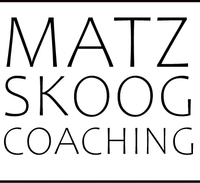Do you sometimes procrastinate because you can’t bear the thought of not being seen to be good? Do you often feel anxious because you have impossible expectations of yourself? If this sounds like you it is possible you’re suffering from a touch of perfectionism.
“But isn’t striving for perfection a good thing?” Not really – in fact struggling to be perfect might actually be standing in the way of being good. This may seem like an odd statement so let me explain.
Perfection is a unique and subjective view by an individual person, and as everyone sees the world through his or her unique filters a commonly accepted view of perfection cannot exist. Furthermore, as we continue to develop our skills and evolve our understanding of the world, each time we think we are approaching a “perfect” outcome we inevitably discover another step beyond that, and then another step beyond that step and so on. Perfection will therefore forever elude us and remain tantalizingly out of our reach. And herein lies the danger of perfectionism, because this feeling of consistently falling short of the mark will make you feel inadequate.
But let’s say, for the sake of argument, that a universally accepted standard of perfection did exist; perfection would then be a static end-goal beyond which it would be impossible to move; as per definition, perfection cannot be improved upon. In my view this would be a rather sad state of affairs, as the perfect outcome of every human endeavor would be pre-defined, and once attained stifle further development and creativity.
Awareness of the difference between a healthy wish to better oneself and perfectionism is critical for maintaining a balanced perspective on life. High standards of achievement are good but expecting to attain perfection is not only doomed to fail; it is a dangerous pursuit. Research shows that perfectionism hampers success. In fact, it is often the cause of depression, anxiety and feelings of powerlessness.
However, ceasing to strive for perfection does not mean stopping to better oneself; there exists an alternative, a different and more powerful standard to aspire to, which is both achievable and more creative, and that is excellence.
To be excellent has as much to do with who you are, as it has to do with what you do. It is a way of being, the sum total of all you choices. It is not simply a measurement of success but also an expression of personal integrity and attitude. Excellence as a measure of quality is dynamic and can be accomplished at every level of achievement and stage of development, from the smallest to the largest of human endeavors. Excellence, therefore, is not only attainable; it will ultimately transcend perfection
So take courage in the fact that once you discover and acknowledge what is uniquely right for you, you can stop the impossible struggle to be perfect and enjoy the positive, creative and ongoing process of being excellent.


